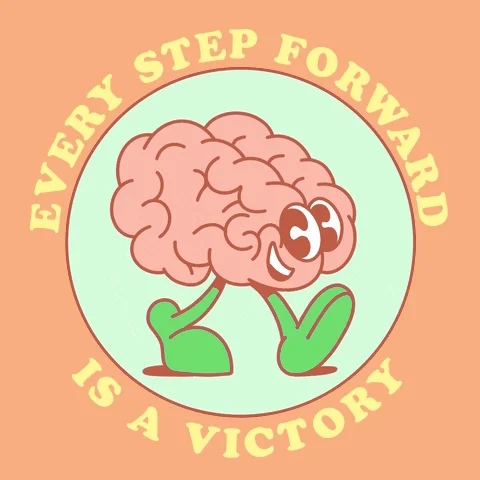Psychotherapy is like doing jigsaw puzzle with your best friend. They won't do the puzzle for you, but they can help you figure out a way to piece out the picture. When you're sad, scared, or having a hard time, the right helper knows the most effective ways to make you feel better.
 Photo by Giorgia Barabaschi on Unsplash
Photo by Giorgia Barabaschi on UnsplashDiscover four approaches to psychotherapy and their distinct benefits to help you make an informed decision when seeking or suggesting professional mental support.
Cognitive Behavioral Therapy (CBT)
Benefits:
Helps identify and change negative thought patterns or cognitive distortions.
Teaches practical skills for dealing with anxiety, depression, and stress.
Focuses on solving current problems with behavioural strategies.

CBT is like learning how to beat a video game.
It helps you find "secrets" to solve problems.
It guides you to spot and change thoughts that make you feel down.
It teaches you practical tricks to deal with worries or sadness.
Psychodynamic Therapy
The mind is like an iceberg, it floats with one-seventh of its bulk above water.
— Sigmund Freud, founder of psychoanalysis
Benefits:
Explores how past experiences shape current thinking and behavior.
Helps develop insight and emotional understanding into inner conflicts.
Identifies relationship patterns and improves interpersonal relationships.
 Photo by Ehimetalor Akhere Unuabona on Unsplash
Photo by Ehimetalor Akhere Unuabona on UnsplashPsychotherapy is like flipping through a book that tells your stories.
It looks into how your childhood experiences affect your outlook, personality, and patterns.
It's like wearing a detective hat and zooming in on your own life story to understand why you feel a certain way.
Quiz
If someone close to you wants to explore their rough childhood and hopes to get insight, what approach would you advise them?
Humanistic Therapy
Benefits:
Emphasizes unconditional self-acceptance and positive self-worth.
Creates a non-judgmental space to express and explore true feelings.
Focuses on empowering your potential and fulfillment.

Humanistic therapy is like being your best self.
It helps you see your strengths and weaknesses, accept them, and find confidence.
It helps you grow and feel good about yourself as a person.
It's like having a cheerleader who believes in you and helps you see how awesome you are.
Dialectical Behavioral Therapy (DBT)
Benefits:
Focuses on observing emotions and actions, accepting what they are, and letting go of what they "should" be.
Teaches coping skills to manage intense emotional pain and challenging situations.
Emphasizes "improving the way you communicate in relationships with others."

DBT is like building stronger emotional muscles.
It guides you to be mindful, accepting your present and planning for a bright future.
It teaches you to handle big feelings and tough times.
It's like going to the gym but for your emotions, making them stronger and healthier.
How to Pick Your Helper

1. Set goals based on your needs.
Reflect on what you're struggling with (e.g., stress, depression, or self-worth) and what you hope to achieve through therapy, e.g. stress management, alleviating depression, or enhancing self-esteem. Check out 24 self-reflection questions to get ready for your sessions and set goals.
2. Consider your preference.
Ask yourself whether you prefer focusing on current problems and practical solutions (CBT, DBT), understanding the deeper roots of your issues (psychodynamic), or exploring potential personal growth (humanistic).
3. Try a consultation.
Many therapists offer an initial intake session. Use this opportunity to ask about their approach and how it can help with your specific concerns. Here are 20 questions to get you started with your new therapist.
4. Listen to your gut.
Choose a therapist and approach that feels right for you. Therapy is a personal journey, and feeling comfortable and connected with your therapist goes a long way.
Scenario: Advice for Tim
Meet Tim. Working as a professional fundraiser, Tim took pride in having an impact through his work. However, his work has been so demanding recently that he feels burned out.
 Photo by Nik Shuliahin 💛💙 on Unsplash
Photo by Nik Shuliahin 💛💙 on UnsplashYou just learned that he took a stress leave. As his best friend, you call to check on him. He shares that he was experiencing feelings of sadness and even guilt. He mentions that he's considering seeking psychotherapy to address the immediate strong emotions so he can get back to work soon.
Which pieces of advice do you think Tim may benefit from? Keep in mind his current situation and goal. Select all that apply.
A. Have a look at cognitive behavioral therapy (CBT). It's great for challenging those unhelpful thoughts.
B. Google dialectical behavioral therapy (DBT). It's all about learning ways to manage stress and emotions.
C. Consider starting with psychodynamic therapy. It explores insights from your childhood.
D. Humanistic therapy could be a good fit. It focuses on helping you become your best self.
Quiz
What advice would you give Tim? Select all that apply:
Take Action

Now you have a clear understanding of the benefits the four main types of psychotherapy has to offer. One more thing to keep in mind before you go: psychotherapy isn't about fixing what is broken — it's about discovering what is unbroken and nurturing that wholeness.
Check out these resources to learn more about psychotherapy:
Your feedback matters to us.
This Byte helped me better understand the topic.
